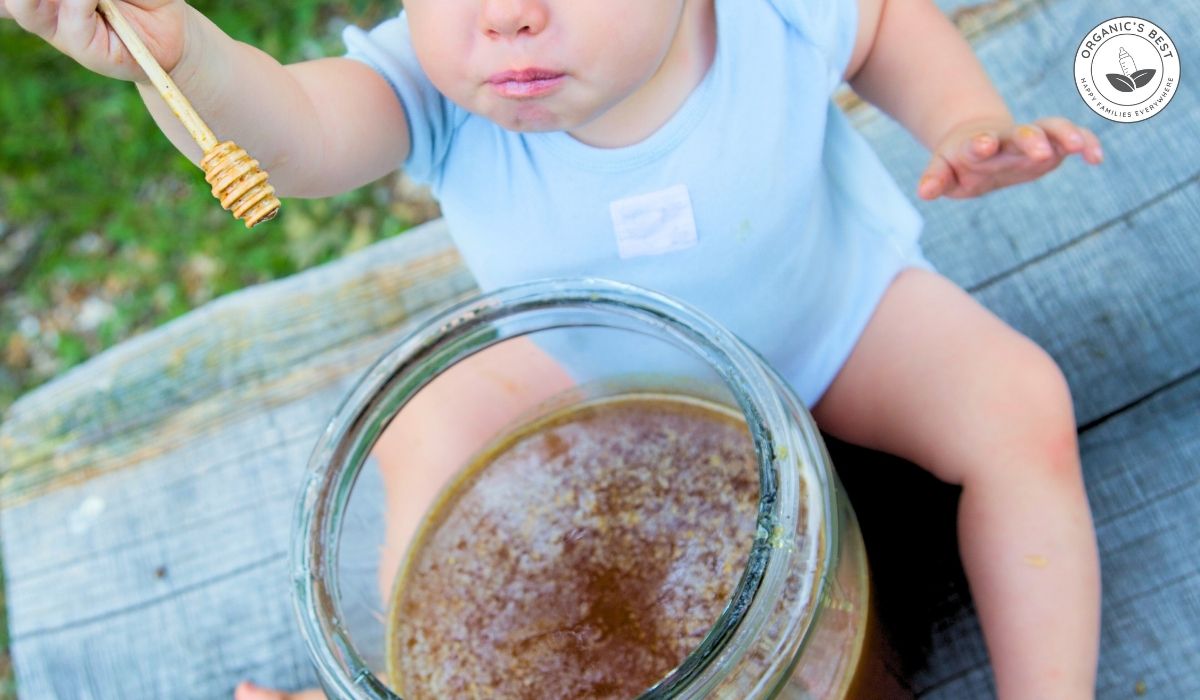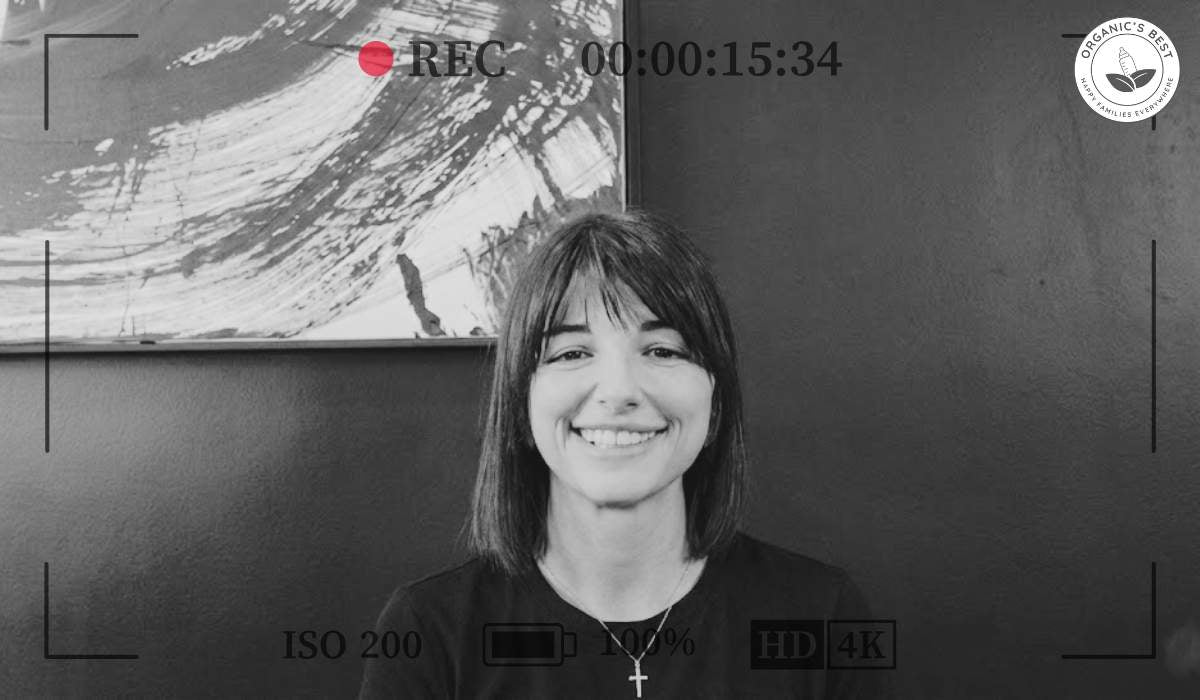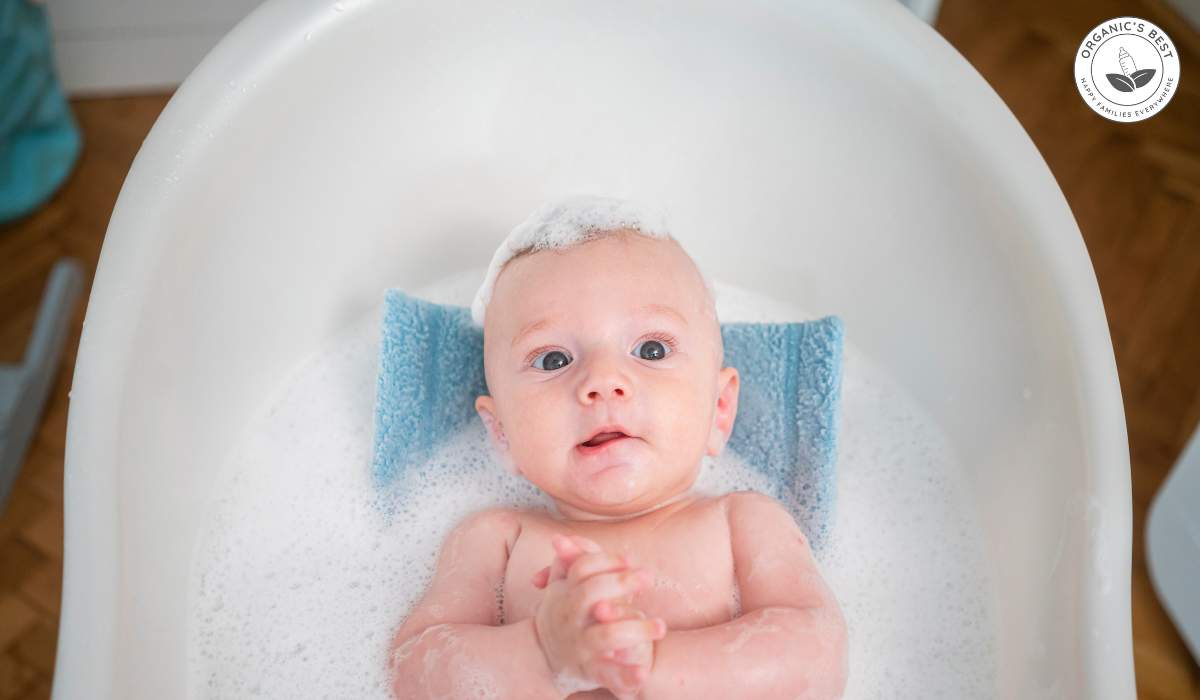Click to Get 2 FREE Boxes/Cans
Only New Customers! Click HERE to Get 2 Extra Boxes/Cans for Free With Your First Order.
BABY FORMULA
Offering new parents top-quality European infant formula from renowned brands like HiPP, Holle, Kendamil, and more. If you’re uncertain about which product to choose, our Formula Finder can help you make the best decision for your baby.
Baby Food
Offering new parents a premium selection of European baby foods, including jars, pouches, cereals, and snacks from esteemed brands like HiPP and Holle.
Why Can't Babies Have Honey
by Agustina Fernandez February 07, 2023 4 min read

Your baby’s transition to solid foods is an exciting milestone. This time can be filled with fun and frustration as navigating the world of new baby foods can be complex. New parents quickly learn there are a variety of foods initially off limits.
While some foods are best to avoid in the first year, like raw foods due to choking hazards or developing a food allergy from cow's milk, the story behind honey is a little different.
This natural sugar may seem harmless, but it is actually very dangerous for babies under 1 year and in this article, we’ll explain why.
Table of contents
Why Can’t Babies Eat Honey?
The short answer to why babies can't eat honey: Infant Botulism. This is a very rare, however dangerous, and potentially fatal condition that primarily affects infants under 1 year of age. While honey itself is not considered contaminated, it contains the spores of a bacteria called Clostridium Botulinum.
When infants consume these spores, they can proliferate in their digestive tract producing the toxin that causes botulism. Whether it's pasteurized or raw honey, you will want to refrain from introducing honey into your baby's diet right away.
After 12 months of age, honey is safe to consume, as a child’s digestive system has matured enough to handle the dormant bacteria. Botulism does not pose any harm to adults or children over 1 year, so before long, your baby will be able to enjoy the sweetness and nutrients honey has to offer!

What is Infant Botulism?
Infant botulism is an illness caused by a buildup of toxins in the large intestine that attacks the nervous system. It is thought that the dormant bacteria called Clostridium Botulinum, which honey contains, comes alive in an infant’s digestive tract.
This is due to the fact that an infant’s gut microbes are changing as they slowly make the transition from milk to solids. Consequently, the bacteria have the opportunity to proliferate in an infant’s tummy, and as it grows, it releases a toxin that can be very harmful to your baby.
As this toxin enters the bloodstream, it affects the release of acetylcholine, a chemical messenger that sends nerve signals to muscles, which results in loss of muscle control and can lead to paralysis and difficulty swallowing and breathing. This is why it is important that infants don't eat honey before the age of 1.
How is Botulism Contracted?
The bacterium C. Botulinum is very common in the environment. It exists in dust, soil, and some foods like canned food (source). However, these days, food producers take greater precautions. Therefore, this is less of a concern.
The most recognized carriers of C. Botulinum include:
- Honey
- Dust
- Herbal teas
- Vegetables

This is why it is not recommended to take your baby under 12 months of age out on a very windy day. It is also important to ensure that any vegetables you feed your baby are washed very well and free of trace amounts of dust.

There are some steps you can take to protect your child:
- Always sanitize your hands properly
- Thoroughly wash and cook all vegetables well
- Do not feed your infant honey or other foods that may contain it
- Check that food that has been in contact with the earth is not put into an infant’s mouth
Parents can take these simple precautions to protect their babies from illness. While local honey has many health benefits, your baby does not need the added sugars. So you can introduce honey to your child at a later time with confidence.
What to Watch for: Symptoms of Infant Botulism
Infant botulism specifically refers to the illness when it affects children under 12 months old, and symptoms can include:
-
Constipation
- Droopy eyelids
- Weak or altered cry
- Lack of facial expression
- Decrease in sucking and gagging reflexes
- Weakened muscles or paralysis of legs and arms
- Respiratory distress and possible respiratory arrest

While some of these signs may point to something less serious like food allergies, it is important that babies are monitored closely especially when new foods begin to be introduced!
How is Botulism Treated?
Infant botulism is a very rare, but very serious illness. If you believe your infant has contracted botulism, it is important to seek medical attention right away.
Infant botulism is a medical emergency that will most likely require a hospital stay of weeks or possibly months, depending on the severity of the condition.
A doctor will administer an antitoxin to prevent the toxin from causing further damage. Treatment might also entail the administration of IV fluids, a feeding tube, and possibly a ventilator to provide breathing assistance until the paralysis gradually improves and your baby can breathe on their own.
When Can Babies Have Honey?

You can safely introduce honey once your baby's first birthday has passed. After one year, your little one’s immune and digestive system will have matured and they will be ready to try this sweet treat.
Until then, be sure to avoid any foods that contain honey as an ingredient. While we don't want to call honey bad, we do want you to refrain from this sugar until your child is ready.
Conclusion
C. Botulinum is a very common bacterium found in honey, and the main takeaway is not to fear it, but take simple precautions as outlined above to protect the health of your baby.
Now that you know what infant botulism is and the symptoms to look out for, you know why it is important not to feed honey or any honey-containing products to babies under 12 months.
And should any symptoms arise, you know to seek medical treatment immediately. After one year, you can pull out the raw honey jar and dive into a world of sugar and sweetness with your little baby honey.
Disclaimer:
Please be aware that this information is based on general trends evidenced in babies, it is in no way medical advice. Your baby's doctor should be your first source of information and advice when it comes to your child’s well-being. Always consult your pediatrician with any questions or concerns you may have regarding your infant's health. |
Agustina Fernandez
Dr. Agustina Fernandez earned her medical degree from the prestigious Universidad Nacional de Córdoba, Argentina. With a deep-rooted passion for pediatrics, Dr. Fernandez is currently on the path to specializing in children's healthcare. Recently, she has delved into the vital field of infant nutrition. Her research interests include breastfeeding, infant formula, and baby food in little ones’ formative years. Dr. Fernandez's commitment to this area of study underscores her dedication to ensuring the health and well-being of children from their earliest days.
Leave a comment
Comments will be approved before showing up.
Also in Organic Infant Nutrition and Health Blog

Spilled Milk: Feeding Unfiltered with Hayley
by Agustina Fernandez February 04, 2026 4 min read
Read More
Baby Bath Guide: How to Bathe a Newborn
by Agustina Fernandez February 03, 2026 8 min read
Read More
Does Your Kid Need More Vitamin D in Winter?
by Agustina Fernandez January 28, 2026 7 min read
Read More
Reviewed by Dr. Po-Chang Hsu, MD, MS
-

Dr. Po-Chang Hsu: Medical Reviewer of Organic's Best Blog
Dr. Hsu received his medical degree from Tufts University in Boston, Massachusetts, and holds a Master’s of Science degree from both Harvard University and Tufts University.
